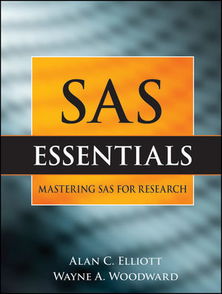Content:
Embarking on an overseas fishing adventure is an exhilarating experience that promises both excitement and the thrill of the catch. Whether you're a seasoned angler or a beginner looking to expand your horizons, mastering the art of catching fish in foreign waters requires a blend of knowledge, skill, and adaptability. Here are some essential techniques to help you become a proficient angler in diverse overseas fishing environments.
Research Your Destination
Before setting foot on the water, it's crucial to research the specific fishing destination. Understand the local fish species, their habits, and the best times to fish. This information can be gathered from local fishing guides, online forums, and travel blogs. Knowing the local regulations and fishing etiquette is also vital to ensure a respectful and sustainable fishing experience.
Choose the Right Gear
The gear you bring can significantly impact your success. Here's what you should consider:
- Rod and Reel: Select a rod and reel that match the type of fish you're targeting. Lightweight spinning rods are ideal for smaller fish, while heavy-duty baitcasting rods are better for larger species.
- Line: The line should be appropriate for the fish size and the type of fishing you'll be doing. Monofilament, fluorocarbon, and braided lines each have their advantages and should be chosen based on the water clarity, fish sensitivity, and casting distance.
- Lures and Bait: Familiarize yourself with the local bait and lures that are effective for the fish you're targeting. In some cases, using live bait might be more successful than artificial lures.
Master the Basics of Casting
A good cast is the foundation of successful fishing. Practice your casting technique to ensure accuracy and distance. Here are some tips:
- Learn the Different Casting Techniques: There are various casting techniques, such as the overhead cast, sidearm cast, and roll cast. Each is suitable for different situations and fish species.
- Control Your Line: Keep your line under control at all times. A slack line can lead to missed opportunities, while a tight line can spook fish.
- Practice: The more you practice, the better your casting will become.
Understand the Local Environment
Fishing in a new environment requires an understanding of the local conditions:
- Water Conditions: Observe the water's temperature, clarity, and flow. Fish behavior can be significantly affected by these factors.
- Weather: Weather patterns can influence fish activity. Wind, temperature, and rain can all impact the fish's feeding patterns.
- Tides: Tides play a crucial role in fish movement. Many fish are more active during high tide, while others may feed more during low tide.
Locate the Fish
Once you're on the water, it's time to find the fish:
- Use a Fish Finder: A fish finder can help you locate schools of fish and understand their depth and movement.
- Observe the Water: Look for signs of fish activity, such as surface disturbances, bubbles, or fish jumping.
- Ask Locals: Local anglers can provide invaluable information about the best spots to fish.
Patience and Persistence

Fishing is a patient sport. Fish may not bite immediately, and you may need to experiment with different techniques and baits. Stay focused and be prepared to wait for the perfect moment.
Learn from Mistakes
Even the most experienced anglers make mistakes. Analyze what went wrong and learn from it. Each fishing trip is an opportunity to improve your skills.
Conclusion
Overseas fishing offers a unique challenge that can be both rewarding and exhilarating. By researching your destination, choosing the right gear, mastering casting techniques, understanding the local environment, and maintaining patience, you'll be well on your way to becoming a proficient angler. Remember, the key to success is a combination of knowledge, skill, and a love for the sport. Happy fishing!












